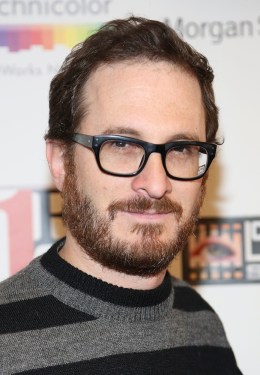
Darren Aronofsky attends the closing night awards during the 2013 First Time Fest at The Players Club on Mar. 4, 2013, in New York City.
At what point does a biblical epic cease to be biblical? That may be the very question causing furrowed brows at Paramount. A widely read story from The Hollywood Reporter reports the studio is sparring with director Darren Aronofsky over the final cut of Noah — his big-budget tale of the antediluvian patriarch (played by Russell Crowe).
Why anyone thought that the director of Black Swan, The Wrestler and Requiem for a Dream would stay true to the source material — the Bible — is a mystery. The project, whose budget has soared past $125 million, now sits locked in a post-production process that has produced nary a trailer ahead of its projected March 28, 2014, release date.
Multiple media sources report that various versions of the film were screened to preselected audiences representing various segments of likely viewers: a largely Jewish contingent in New York City, a Christian-heavy theater in Arizona and a genera public crowd in Southern California. The studio was understandably upset over a large number of “troublesome” reactions.
While Paramount hasn’t shed light on all this worry and says the multiple reactions all part of the normal preview process, Aronofsky has in the past called Noah “the first environmentalist” and suggested he might take liberties with the account related in Genesis 6:9.
Sources told The Hollywood Reporter that Aronofsky “is not made for studio films” and doesn’t care about Paramount’s desire to fit the film into a more blockbuster-friendly mold.
Sure, we’re going to expect some creative license with the movie, which apparently utilizes some high-end special effects to recreate the flood as well as every single critter in Noah’s menagerie.
But one of the main questions may lie in how this movie ends — after Noah gets the instructions to build the ark, gathers the animals, and floats around for almost a year.
Where our shipbound hero goes from there is apparently a matter of dispute between the director and the studio (and perhaps God). If Aronofsky sticks with the premise that this movie is “about environmental apocalypse,” don’t expect any type of traditional biblical epic. Unless, of course, Paramount gets its way.
For Aronofsky’s Noah, it’s not easy being green.

